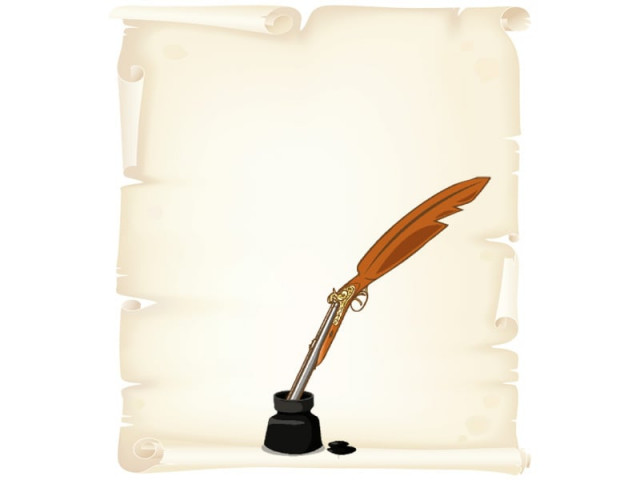Still standing: The tappay that tongues cannot forget
Historic verses about war and heroics among other subjects keep the oral tradition alive.

Still standing: The tappay that tongues cannot forget
‘Tirah namos da Pukthano dy / Topak rawakhla perengyan Tirah ta zeena’
(Tirah is the honour of the Pukhtun race / Take your guns as the British are marching on Tirah)
The historic ‘tappa’ reflects an important event in the lives of the Afridi tribesmen — the 1897 military expedition conducted by the British Army in the seemingly inaccessible valley.
Tappa is without doubt one of the most famous genres of Pashto poetry. It consists of two lines, the first shorter than the latter. The first line has nine syllables and the second 13.
There are thousands of tappay in Pashto. The origin of a few can be traced back to heroic events in wars and of war heroes. Though the genre is considered to be exclusively the domain of women, the poetesses behind these historic verses remain hidden behind the veil of time.

The age of writing tappay may have been long gone, but people of K-P, its adjoining tribal belt and neighbouring Afghanistan have kept the oral tradition alive. Tappay are used to shed light on conventional wisdom.
With Pukhtuns long considered to be masters of war, it is no wonder many historic tappay are inevitably derived from the valour of warriors. Ahmad Shah Abdali who led the Afghans to inflict a crushing defeat on the Marhata army is eulogised in the following tappa: ‘Ahmad, may God bestow on you the eternal pleasures of afterlife / Is there anyone else who fought in the distant (corners of) India?’
Some tappay are as introspective as they are retrospective. Consider this tribute to tribal hero Ramdad Khan Mohmand on his death. ‘The era of Ramdad Khan’s turban passed / Mohmand’s tribesmen should abandon the practice of wearing a turban’.
Israr Attal, renowned Pashto poet and author of several books on tappaiza, introduced a new genre in poetry by modifying the traditional tappa by adding two more lines to it. He told The Express Tribune the tappa’s unique nature is due to its simplicity and depth, a seamless union of light and shade. He also shares how for the tappa, the nine and 13 syllables rule is universal. “It is indeed an entire poem written in just two sentences,” he said, adding the tappa finds no equals in any other language or poetry.
Though war was one way of keeping the British hostility as bay, the Pukhtuns managed to draw blood through tappay as well. Many such verses marked the infamous Ambela campaign of 1863 when the Pukhtuns vehemently opposed the British colonial forces. One such tappa stands out for its scathing undertone: ‘Jackals in the wilderness of Ambela are fat / Thanks to the abundant corpses of English troops.’
Published in The Express Tribune, December 7th, 2014.













COMMENTS
Comments are moderated and generally will be posted if they are on-topic and not abusive.
For more information, please see our Comments FAQ